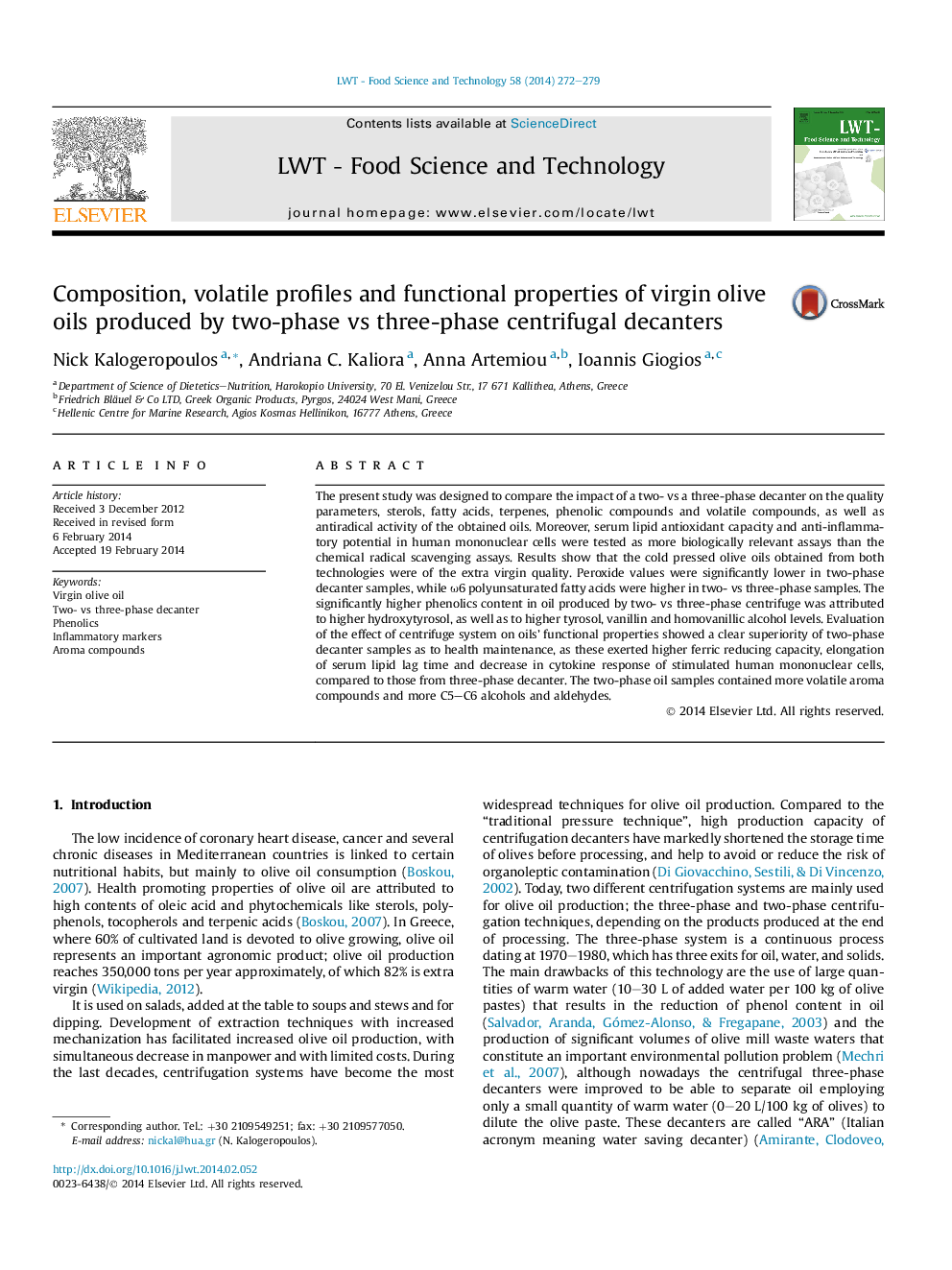| کد مقاله | کد نشریه | سال انتشار | مقاله انگلیسی | نسخه تمام متن |
|---|---|---|---|---|
| 6404118 | 1330899 | 2014 | 8 صفحه PDF | دانلود رایگان |
- Oils produced from Koroneiki cv olives with three- or two-phase decanters were compared.
- Two-phase (2-P) oils contained more total phenolics, OH-tyrosol and tyrosol.
- 2-P oils exhibited higher reducing capacity & elongation of serum lipid lag time.
- 2-P oils caused higher decrease in cytokine response of stimulated human PBMCs.
- 2-P oils contained more volatile compounds and more C5-C6 alcohols & aldehydes.
The present study was designed to compare the impact of a two- vs a three-phase decanter on the quality parameters, sterols, fatty acids, terpenes, phenolic compounds and volatile compounds, as well as antiradical activity of the obtained oils. Moreover, serum lipid antioxidant capacity and anti-inflammatory potential in human mononuclear cells were tested as more biologically relevant assays than the chemical radical scavenging assays. Results show that the cold pressed olive oils obtained from both technologies were of the extra virgin quality. Peroxide values were significantly lower in two-phase decanter samples, while Ï6 polyunsaturated fatty acids were higher in two- vs three-phase samples. The significantly higher phenolics content in oil produced by two- vs three-phase centrifuge was attributed to higher hydroxytyrosol, as well as to higher tyrosol, vanillin and homovanillic alcohol levels. Evaluation of the effect of centrifuge system on oils' functional properties showed a clear superiority of two-phase decanter samples as to health maintenance, as these exerted higher ferric reducing capacity, elongation of serum lipid lag time and decrease in cytokine response of stimulated human mononuclear cells, compared to those from three-phase decanter. The two-phase oil samples contained more volatile aroma compounds and more C5-C6 alcohols and aldehydes.
Journal: LWT - Food Science and Technology - Volume 58, Issue 1, September 2014, Pages 272-279
